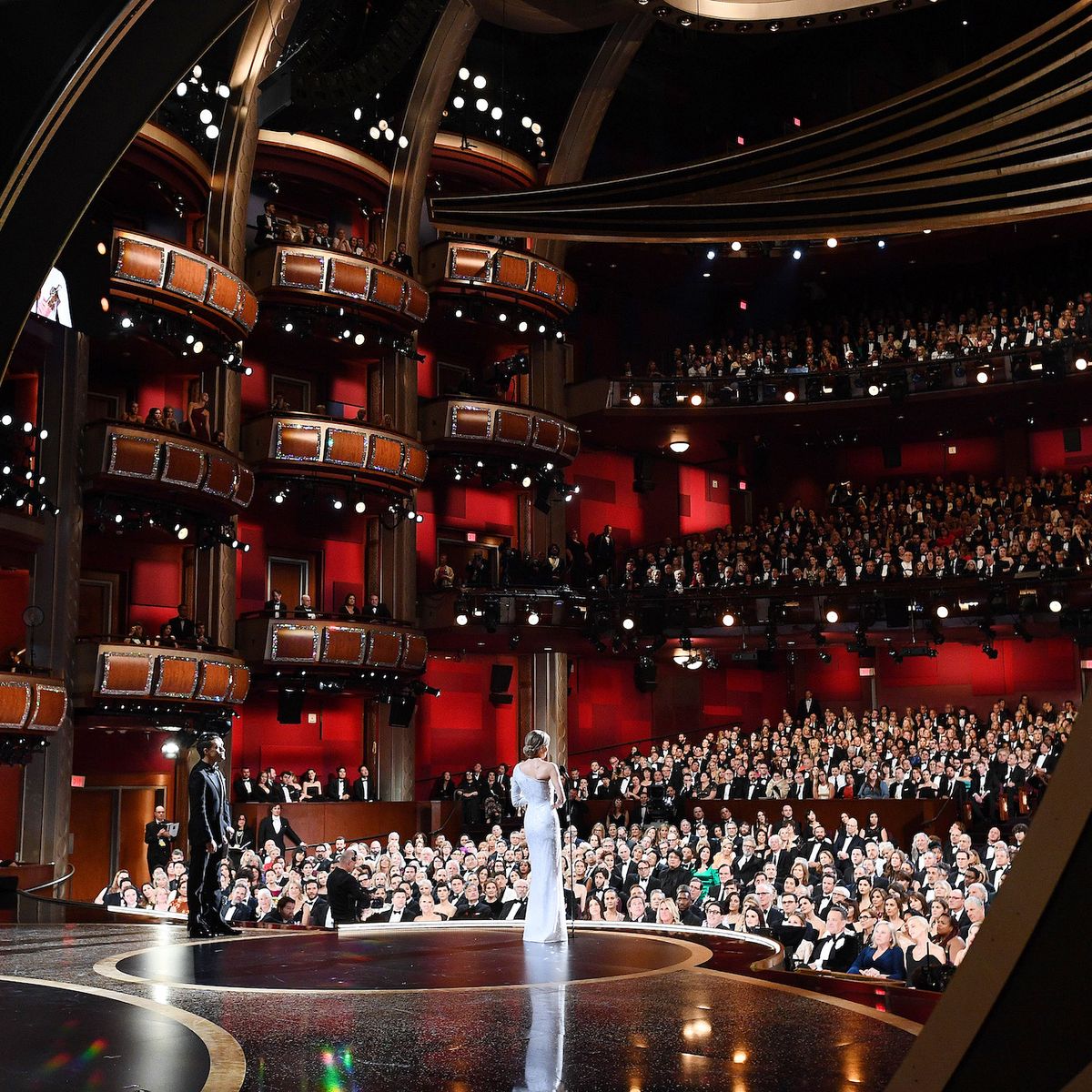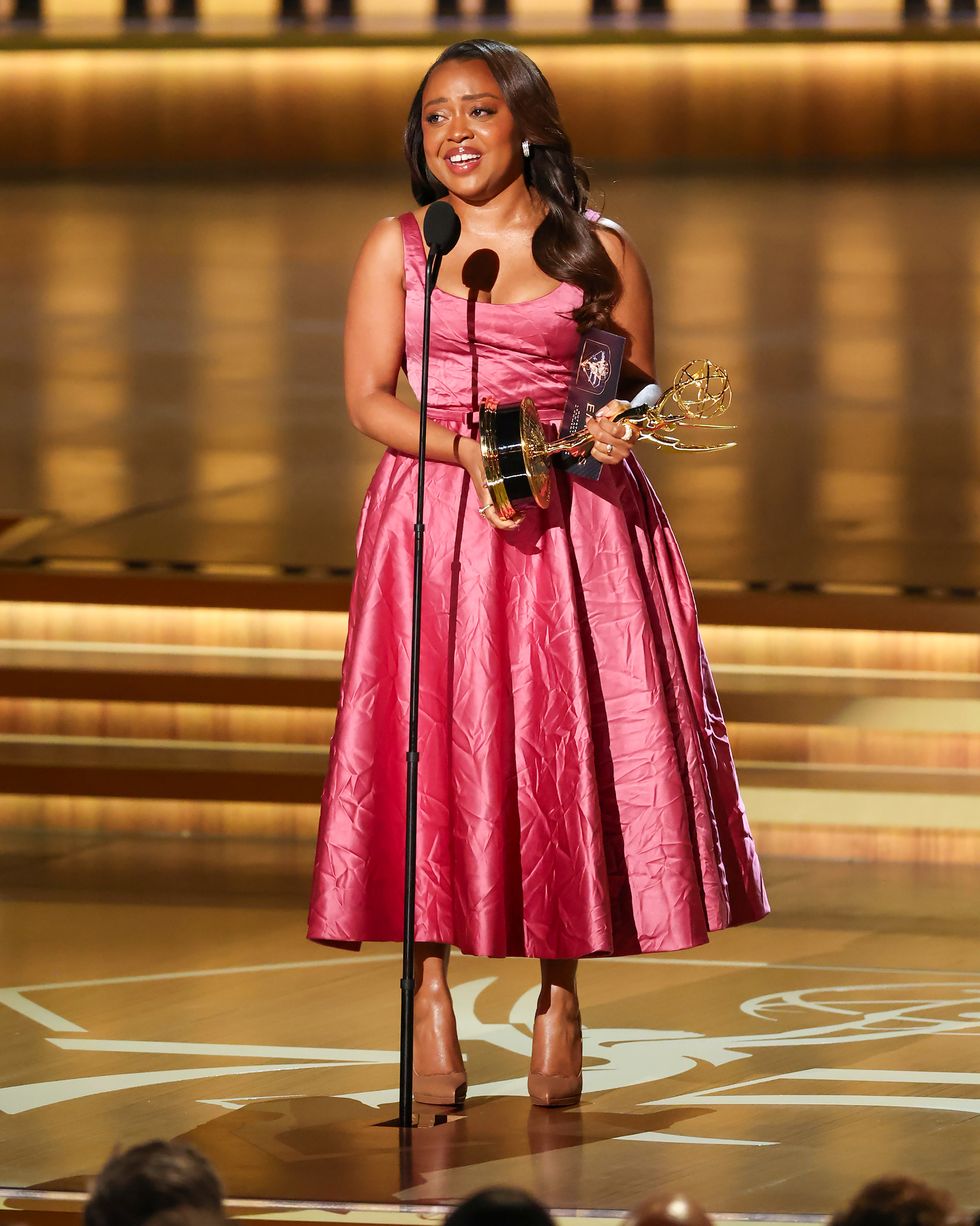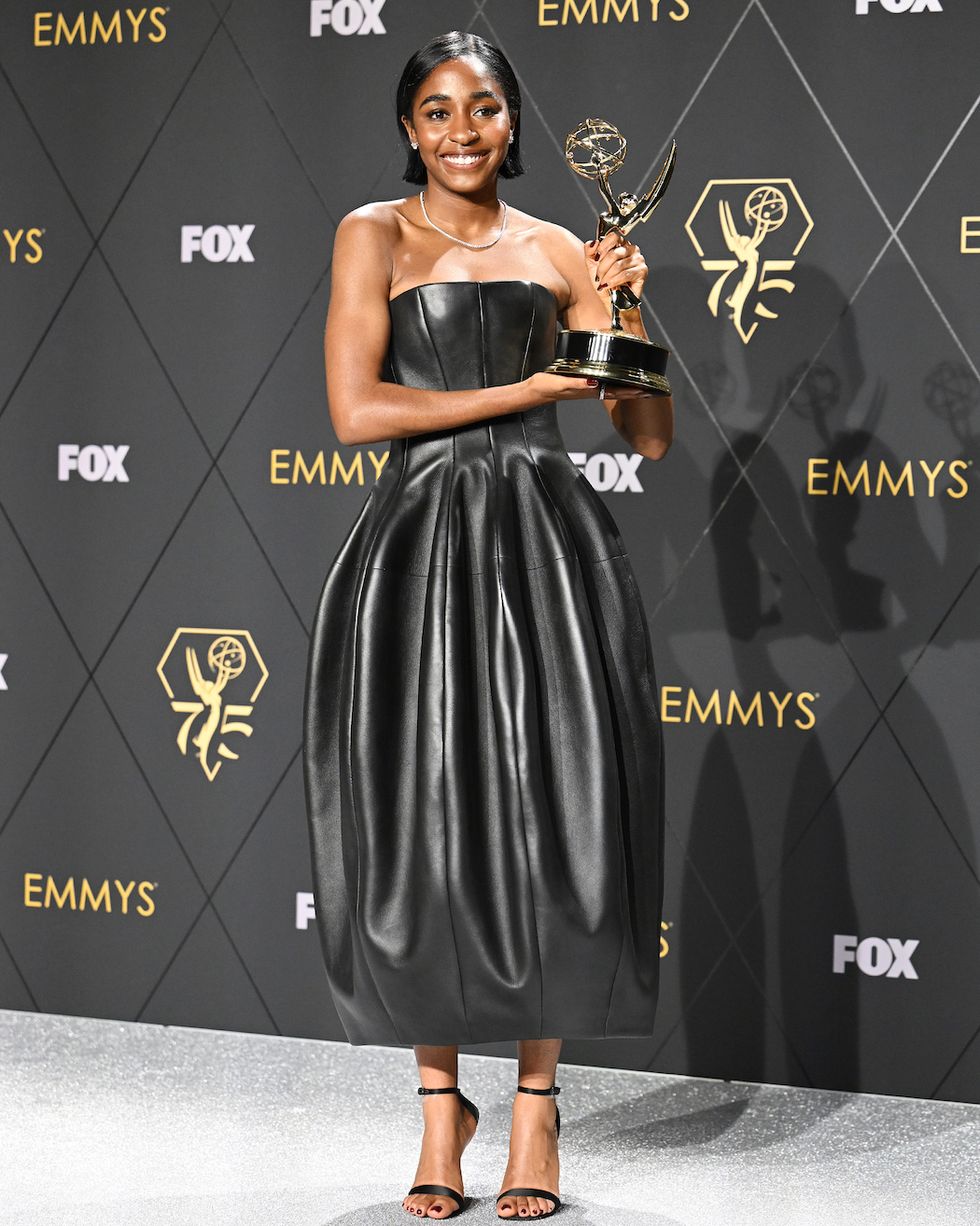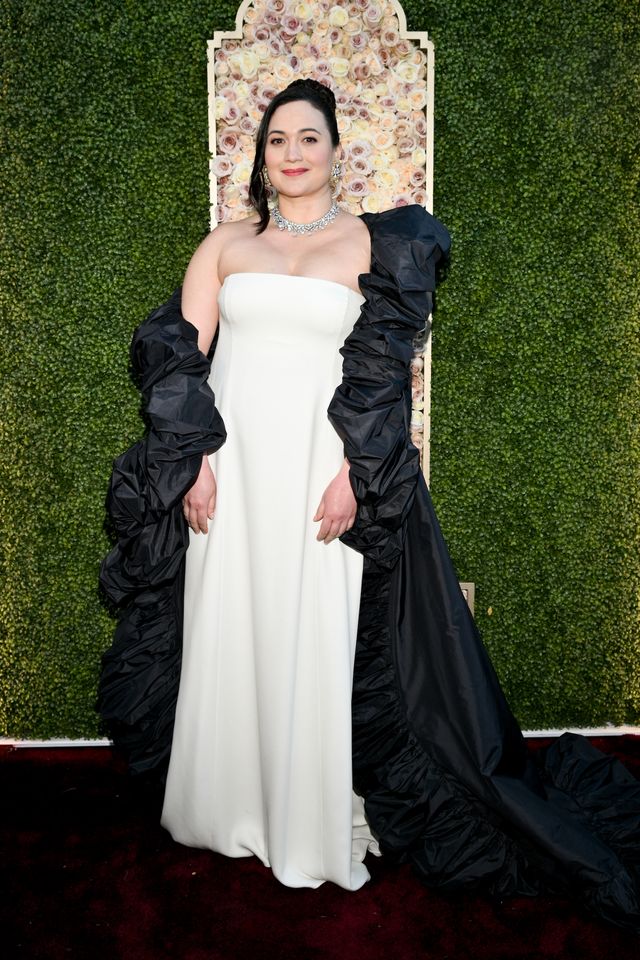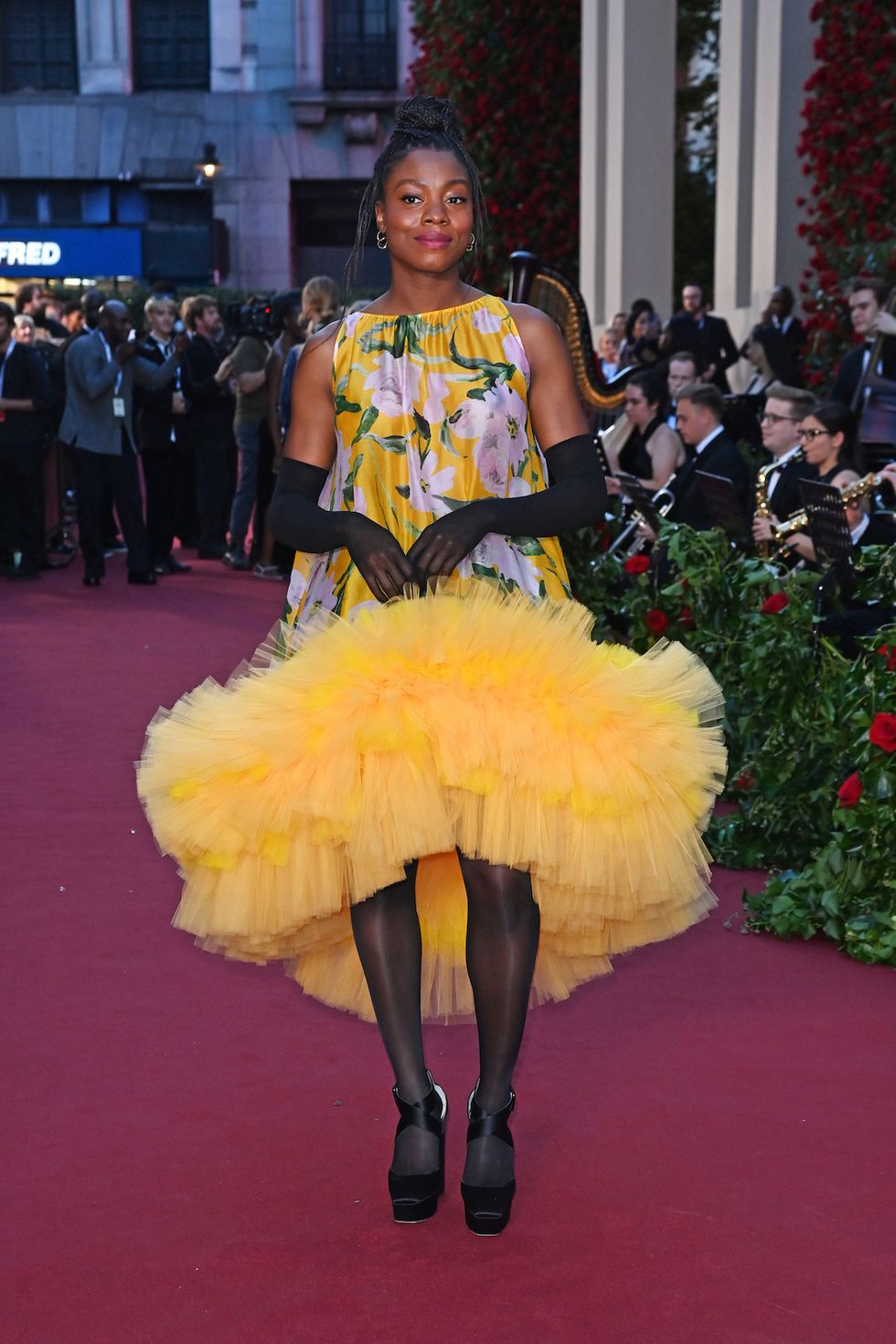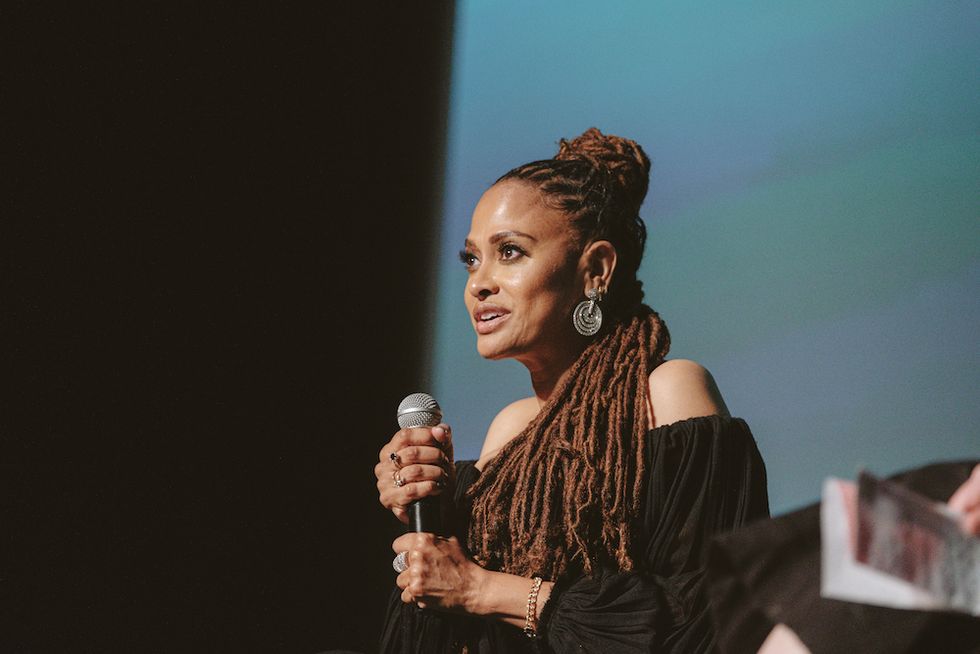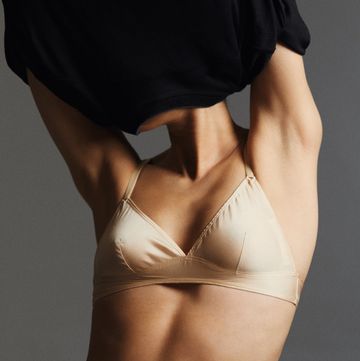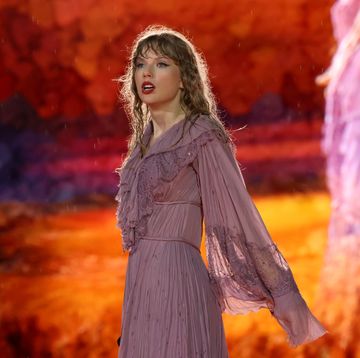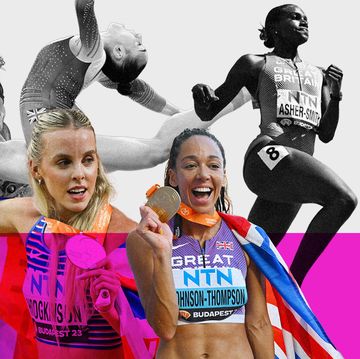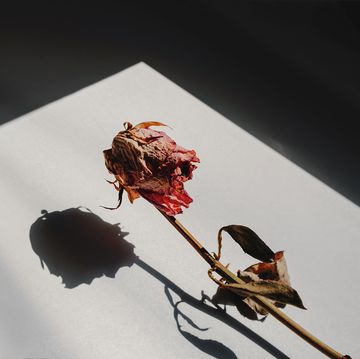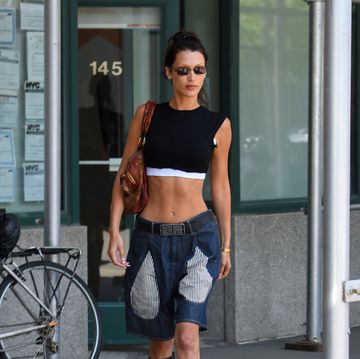Progress is a game of snakes and ladders. The 75th Primetime Emmy Awards in January marked the first time in the awards’ history that two Black women won both coveted comedy awards in the same year. Abbott Elementary star Quinta Brunson took home the award for Best Actress in a Comedy Series while everyone’s parasocial best friend, Ayo Edebiri, became the third Black woman to win Outstanding Supporting Comedy Actress for her portrayal of Sydney Adamu in The Bear.
Sheryl Lee Ralph, a legend in Black entertainment for her role in sitcoms like Brandy’s teen hit Moesha and films like Sister Act 2, won in 2022 also for her role in Abbott Elementary. Before Ralph, the last person to win was Jackée Harry for 227 back in 1987, a decade before Edebiri was even born. 2024 was the year that the most Black women were nominated in this category ever.
FIND OUT MORE ON ELLE COLLECTIVE
There were also record amounts of wins for East Asians with Beef creator Lee Sung Jin becoming the first to take home the award for outstanding limited series, directing, and writing while Steven Yeun and Ali Wong became the first Asians to win awards for leading the season.
Pair this with Ru-Paul’s domination as the most awarded Black artist in Emmys history, winning eight consecutive awards for Outstanding Host for RuPaul's Drag Race, and Trevor Noah winning the Emmy for Outstanding Talk Show series for The Daily Show and you could conclude that things are finally looking up for diversity on our television screens.
‘It’s exciting to see this many [POC] nominations,’ says Anthony Andrews co-founder of We Are Parable, an organisation that exhibits and distributes Black cinema as well as develops mentorship opportunities. One would hope that seeing such a diverse range of winners recognised for their work would be a motivating factor for budding voices in the industry and would give commissioners the confidence to take a chance on similar projects and artists. If only it was that simple.
Despite the Academy Awards, which will take place on March 10, making steps forward when it comes to improving diversity – Lily Gladstone became the first Native American to be nominated for Best Actress, a milestone she called ‘long overdue’, while Colman Domingo and Jodie Foster are the first two openly LGBTQ+ actors to have been nominated for playing LGBTQ+ characters – the entertainment industry is still largely dominated by heterosexual white men. Audiences and industry critics alike have criticised how long it has taken the television and film industry to value women and other marginalised voices’ work, especially within prestigious and often career-defining awarding bodies. Equity, a union representing most of the UK’s performing arts workers told The Guardian that even if academies like the BAFTAs make changes to its organisation to improve diversity and inclusion, the problem is the lack of representation in entertainment as a whole. ‘It’s actually a bigger political issue than just the awards industry itself,’ the spokesperson added. As such, the positive highlights from just one award season cannot be a reliable indicator of major change on their own.
‘I do not see this year as a turning point for diversity in film,’ says Martha Lauzen, the Executive Director at the Centre for the Study of Women in Television and Film. While the likes of this year's Emmys' historic moments have merit as signs of progress and triumph, seeing any institution celebrating the first time it has acknowledged an entire demographic’s achievements is not the arbiter of talent. ‘Progress in the industry is rarely linear,’ continues Lauzen. ‘For example, percentages of individuals working in key behind-the-scenes roles will trend up a couple of points one year, only to decline by a couple of percentage points the next. The same is true of on-screen representation.’
Besides awards, money talks. Delving into the 100 top-grossing US movies last year, Lauzen’s USC discovered that only 12% had a woman behind the camera. Only four were women of colour and director Nia DaCosta was the only Black woman. She was at the helm of The Marvels, which is notable for the size of its budget. In film, it’s also extremely hard for a woman to secure money to really bring their best ideas to life. ‘Nia was the first woman to direct a film of a $200 million budget,’ explains Andrews, noting that it was the highest budget ever given to a Black female director. ‘But it felt like a massive pile on and was talked about as a failure even before release.’ It was critically panned.
Taraji P Henson has won Golden Globes and SAG awards and received an Oscar nomination in 2009 for Best Supporting Actress (The Curious Case of Benjamin Button), but recently made headlines by saying she was considering quitting acting because of a lack of pay. ‘The math ain’t mathing,’ she said. ‘Every time I do something and I break another glass ceiling, when it’s time to renegotiate I’m at the bottom again like I never did what I just did and I’m tired.’
Even the outrage over Barbie – Margot Robbie and Greta Gerwig weren’t nominated in the Oscar categories fans wanted to see them take home – missed the mark. It cost $145 million (£111 million) to make and $150 million (£118 million) to market. ‘Everyone’s forgetting that they’re nominated for best screenwriter and producer. They are being recognised for their work,’ Andrew says. It’s unlikely in a money-obsessed industry that the pair would make a billion-dollar movie and not be acknowledged in any way, but there’s clearly still some snobbery around how prestigious an award they’re entitled to with a chick flick.
Meanwhile, Ava Duvernay’s Origin (which cost $38 million/£30 million to make and explores racism and misogyny via the true story of the first Black woman to win a Pulitzer prize) barely made a ripple in the online furore of award season snub reactions. ‘It’s been disappointing it hasn’t had the reach in the Hollywood community in terms of the industry that considers awards, and that’s a mechanism of our distributors’ limited budget and strategy in the way that it’s been rolled out,’ Duvernay told The Associated Press. There are even videos online of the lead actress Aunjanue Ellis-Taylor handing out flyers for the film outside theatres in LA. ‘The marketing team has deserted her, it's like she’s promoting the film single-handedly,’ adds Andrews. Miniature gold statues from award shows are important but the real test of value in the film industry is financial backing to remunerate teams fairly and also make sure the project reaches the right audience.
As Lauzen explains, rather than working to progress ‘in large part, awards reflect the lack of diversity in the film and television industries’. She’s wary to say for sure that the nominations, while cause for celebration, point to progress as the pattern so far has been that some years there’s a slight increase, followed by a slight decrease the next. ‘To reach a turning point implies that a problem has turned a corner and has been resolved or is forever changed. But representation, both on screen and behind the scenes, is something that has to be tracked and talked about every year.’ From an industry perspective, that’s making sure opportunities are being given to a range of voices and for audiences that’s a cue to go and support those projects so the industry sees their value.
The glamour, outfits and 'meme-able' moments are not the only reason that awards season captures our attention every year. It’s recognition: for all the filmmakers, directors, producers, stylists and, actors who work to bring their visions to life, and the communities who connect with their point of view. Awards send a message that Hollywood is taking notice of the diversity of its audience and that stories from all walks of life are worth telling. The Emmys showed that marginalised voices don’t have to just sit in the audience and clap for their peers year after year, which the Oscars is steadily learning too. The industry is far from being perfectly representative, and many talented voices are still not being heard, but with more successes from marginalised voices it's hard to argue against inclusion and recognition. And this social pressure is leading to tiny steps forward.
ELLE Collective is a new community of fashion, beauty and culture lovers. For access to exclusive content, events, inspiring advice from our Editors and industry experts, as well the opportunity to meet designers, thought-leaders and stylists, become a member today HERE.
